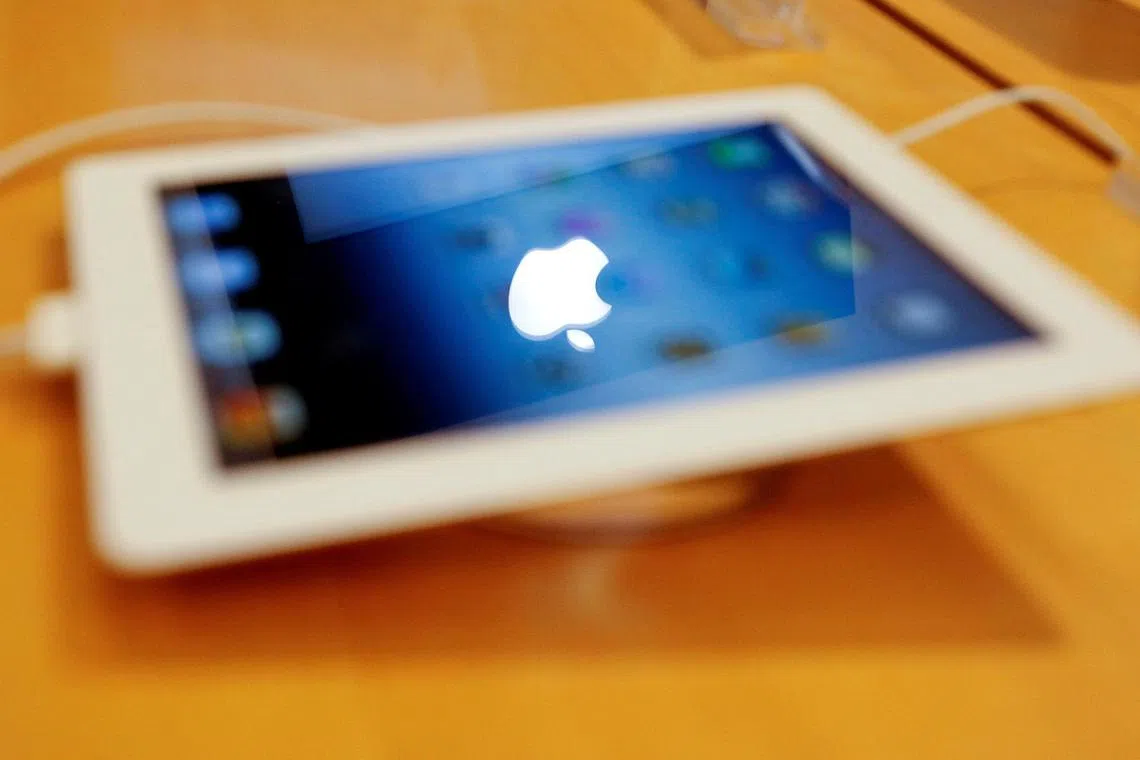Apple, Samsung halt laptop imports to India after sudden curbs
Sign up now: Get insights on Asia's fast-moving developments

Tech firms like Apple are now scrambling to secure import licences, with the Diwali shopping season approaching.
PHOTO: REUTERS
Follow topic:
NEW DELHI – Apple, Samsung Electronics and HP are among the biggest names freezing new imports of laptops and tablets to India after Prime Minister Narendra Modi’s government abruptly banned inbound shipments without a licence.
Regulators on Thursday surprised the world’s biggest PC makers when they made licences mandatory for import of electronics, from small tablets to all-in-one PCs, without a licence.
Laptop makers had been bracing for some government measures aimed at reducing reliance on imports and boosting local production, but the sudden licensing imposition caught the industry off guard.
Tech firms are now engaging with New Delhi on how to most quickly obtain licences at a period of heightened consumer interest, with India’s Diwali shopping season and back-to-school period approaching.
It is unclear how long it would take for Apple and the others to get licences, but the halt is already disrupting a multibillion-dollar trade in foreign PCs at a crucial time.
The requirement creates additional headaches for manufacturers already grappling with a global glut of inventory and few triggers to restart sales growth. It could result in delayed India launches or even product shortages in a market that is still largely reliant on shipments from overseas.
The import restriction, an example of India’s sudden policy shifts, adds to longstanding measures designed to discourage bringing in foreign electronics. It is intended in part to realise longer-term ambitions to create a world-class tech manufacturing industry.
Mr Modi’s government is currently seeking applications for a 170 billion rupee (S$2.8 billion) financial incentive plan to draw makers of laptops, tablets and other hardware to the world’s most populous nation as companies look to diversify supply chains beyond China. BLOOMBERG

